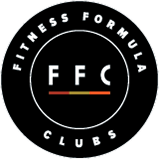The Biggest Myths of Prenatal Pilates, Debunked: My Thoughts
FFC Union Station Pilates instructor Nicole Gibson shares her commentary on an article from Pilates Anytime.
Article: The Biggest Myths of Prenatal Pilates, Debunked via Pilates Anytime
Article Summary:
This article focuses on, and busts, five of the most common myths around prenatal Pilates. Our busted myths focus mainly on whether or not Pilates is beneficial for pregnant women. Spoiler alert: it is very beneficial! Pilates is low-impact and therefore safe for the baby. In fact, regular exercise during early stages of and throughout the course of pregnancy is beneficial for boosting mood, reducing stress and providing a healthy source of energy.
This article explains that it does not matter if you have or have never done Pilates before, because a Pilates practice you would complete while pregnant looks different from a Pilates practice that a non-pregnant person would complete.
My Thoughts:
I have always been curious about and intrigued by pre- and postnatal Pilates. I understand the countless benefits Pilates has to offer, and I can only imagine the wonderful effects Pilates has on pregnant women. I also figured that many pieces of movement would be difficult or not necessarily beneficial for expecting mothers throughout different stages of their pregnancy. This article has shined a little bit of light onto this gem of a topic. I was relieved to read the confirmation that prenatal Pilates is beneficial, however, I was shocked at some of these myths, even though they are valid concerns.
Related: New to Pilates? Here’s what to expect for your first class.
Our first myth busted is: Pilates can lead to miscarriage. A terrifying thought. However, because of Pilates’s low-impact nature and because the baby is extremely protected in the womb, practicing Pilates is safe. In fact, regular exercise is very healthy for both mother and baby. Regular exercise boosts your mood, reduces stress and gives a healthy source of energy rather than exhausting you.
Our second myth is: you should not do Pilates unless you have practiced it before becoming pregnant. First of all, anyone can start Pilates any time. Of course having previous experience allows you to understand the principles and fundamentals, but being new to the practice does not take away its benefits. In regards to practicing while pregnant, Pilates has many ways to modify each movement to ensure your session is as beneficial as possible. Overall, however, Pilates while you are pregnant will be different from Pilates for someone who is not pregnant. The activation of your core will focus more on corseting the waist versus a deep contraction.
The third myth states that Pilates is only for women to get back in shape after pregnancy. This is so far from the truth. Regular exercise positively affects the baby’s brain growth and development and keeps the mother in shape and helps her prepare for labor and childbirth. Exercise helps you as a mother feel better in your body and lightens your mood while developing body awareness, strength, control and stabilization. Pilates also helps with aches and pains, especially in the low back and hips.
Related: Interested in postnatal Pilates? Here’s how Pilates can benefit you after pregnancy.
Myth number four is that pregnant women shouldn’t do any core work. Although this is an understandable concern (because of the emphasis on the prevention of diastasis recti, the separation of the abdominals), this does not mean pregnant women shouldn’t do ANY core work. As with most exercise, modifications are available. Core work from a supine position (lying on your back) should be avoided or modified by being propped up. Otherwise, entire core stabilization is healthy and should be practiced. Your core is what you use during labor and childbirth—you will want it to be strong. A strong core not only helps you understand how to push from the abdominals but can decrease your chances of needing an emergency C-section. The biggest tip is to think about corseting the waist while doing standing exercises.
Last, but not least, our fifth and final myth is healthy, active mothers shouldn’t limit their Pilates practice. This ties back to myth number 2; there will always be a limit and your practice while pregnant will be different from your practice before pregnancy. Keep in mind that practicing while pregnant will tire you out more easily because more fluid is circulating and your heart is working harder.
In summary, Pilates can and will benefit expecting mothers, however, your pre- and postnatal practice will look different from the practice of a non-pregnant person.









